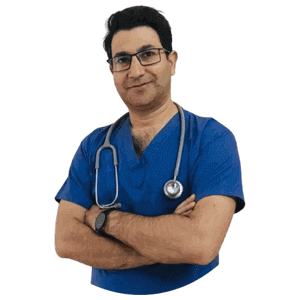Modern society is seeing a huge increase in the popularity of plastic surgery as people look to improve their physical appearance and self-confidence. While some surgeries are straightforward, others may be more difficult and require substantial planning and post-operative recovery. Following a plastic surgery treatment, the healing process can be difficult, and patients may need specialized nursing care to ensure a quick recovery and to lower their risk of problems and hospital readmissions.
Plastic surgery has been incredibly popular in today’s society among both men and women of all ages. But the question that appears to be on everyone’s mind is how long it will take to recuperate from surgery and fully resume their normal daily activities. Recovery times can vary depending on the operation you choose to have done and how well you adhere to the post-operative care guidelines. The cosmetic surgery procedures offered by Aventus Aesthetics in Lahore might help you look how you want.
What are the Types of Plastic Surgery?

A medical specialty called plastic surgery is dedicated to improving or reconstructing the human body. Many cosmetic procedures include Botox, dermal fillers, breast augmentation, tummy tucks, liposuction, eyelid surgery, whitening treatments, and facelifts.
The Importance of Recovery Periods
Why recovering is crucial
Following plastic surgery, the recovery phase is crucial for the fastest healing and greatest results. It lessens swelling, reduces the likelihood of complications, and makes it easier for your body to adjust to the changes brought on by the treatment.
Benefits of adequate recovery time
Allowing ample time for recovery promotes physical healing and enhances general well-being. Having enough downtime during the journey lowers stress, hastens psychological healing, and keeps the spirit upbeat.
Recovery’s emotional and mental aspects
Acknowledging the psychological and emotional impacts of recovering from plastic surgery is important. Patients may experience feelings including happiness, dread, or even momentary remorse. It might be quite beneficial at this time to have a network of family, friends, and professional emotional support around you.
Understanding the Recovery Process

Immediate postoperative period
Patients frequently experience discomfort at the surgical site and drowsiness from anaesthesia in the early aftermath of surgery. Pain treatment with a prescription is essential to feel comfortable and avoid blood clots and pneumonia from inactivity. Maintaining the wound’s cleanliness and eyeing for infections aids in the body’s ability to heal. Rest is crucial for healing following surgery, but patients should avoid heavy lifting to prevent irritating the surgical site. Patients should be informed and alert their physician to any concerning symptoms.
Short-term recovery expectations
A typical adverse effect of surgery for people is swelling and bruising. After 48 hours, these symptoms usually start to subside. These symptoms can be treated with cold compresses, elevation, and anti-inflammatory medicines. When the surgical wound heals, scar tissue will develop. Patients can massage the scar and apply scar creams or oils once the incision heals. It’s important to avoid direct sunlight because it could make scars worse. Follow the surgeon’s recommendations and avoid overexerting the healing areas.
Long-term recovery expectations
The results of surgery rarely show up right away. Genuine effects may take weeks to months to become apparent when swelling decreases, depending on the treatment and individual recovery times. Emotional reactions happen along with physical changes. Different emotions can arise due to acclimation to a new appearance or function. Recognizing these emotions and obtaining support from loved ones or specialists is vital. Particularly after aesthetic operations, patients must preserve the results. Following post-operative instructions or developing healthy habits like a balanced diet and exercise can be beneficial.
Tips for a Smooth Recovery After Plastic Surgery
Always follow post-op instructions
Our surgeon provides post-operative advice for a purpose. These recommendations, whether with medication, wound care, or activity levels, are made to encourage safe healing. Always adhere to these guidelines to prevent issues.
Prioritize rest and sleep
Rest allows your body to mend itself more effectively. Please ensure you get adequate rest, and take it easy as you transition back into your normal routine at work. Please take care of your body and give it the time and space it needs to recover properly.
Hydrate and eat well
A balanced diet is highly helpful in speeding up recovery. Water aids in healing and aids in the removal of contaminants. A balanced diet rich in vitamins and minerals, especially those that help healing, like vitamin C and zinc, can greatly speed recovery. Try to prepare healthful meals in advance of surgery, or enlist the help of a friend or relative to help.
Avoid exhausting activities
Even though modest movement can be useful, avoid heavy lifting, strenuous exercises, or any activity that could stress the operation site. Walking can be a fantastic alternative for staying active and accelerating healing in the first week following surgery. Walking increases blood flow and lowers the risk of blood clots developing in the legs. During this healing phase, it’s crucial not to overstress your body and to give it the time it needs.
Look for emotional support
Similar to how challenging it can be to recover physically from surgery, it can also be challenging to recover mentally. Talk to your loved ones and other close friends, or investigate joining a support group. While getting better, communicating your thoughts and feelings can provide clarity, which can be beneficial and therapeutic.
Attending follow-up appointments regularly
Post-operative checkups should be addressed. In addition to keeping an eye on the healing process, these visits offer the chance to address any concerns, ask questions, and ensure that everything is proceeding as planned. The follow-up visit is essential for monitoring recovery and ensuring the patient and surgeon are satisfied with the cosmetic outcomes. Our surgeon can provide more guidance for a speedy recovery.
Conclusion
Plastic surgery recovery is a process that calls for endurance, diligence, and comprehension. Patients can speed up their healing and get the desired results by having reasonable expectations and adhering to post-operative care guidelines. To achieve the greatest outcomes, speaking with a board-certified plastic surgeon will give you more insight into what to anticipate during the healing process.
Aventus Aesthetics: Elevating Beauty and Confidence
At Aventus Aesthetics, we understand the transformative power of plastic surgery. Beyond the physical enhancements, it’s about rejuvenating self-confidence and redefining self-worth. Our team of expert surgeons and dedicated staff are committed to ensuring that every patient’s journey, from consultation to recovery, is smooth, informed, and tailored to individual needs. With state-of-the-art facilities and a patient-centric approach, Aventus Aesthetics in Lahore is a beacon of excellence in cosmetic procedures. Trust in our expertise to guide you toward a more confident and radiant you.


